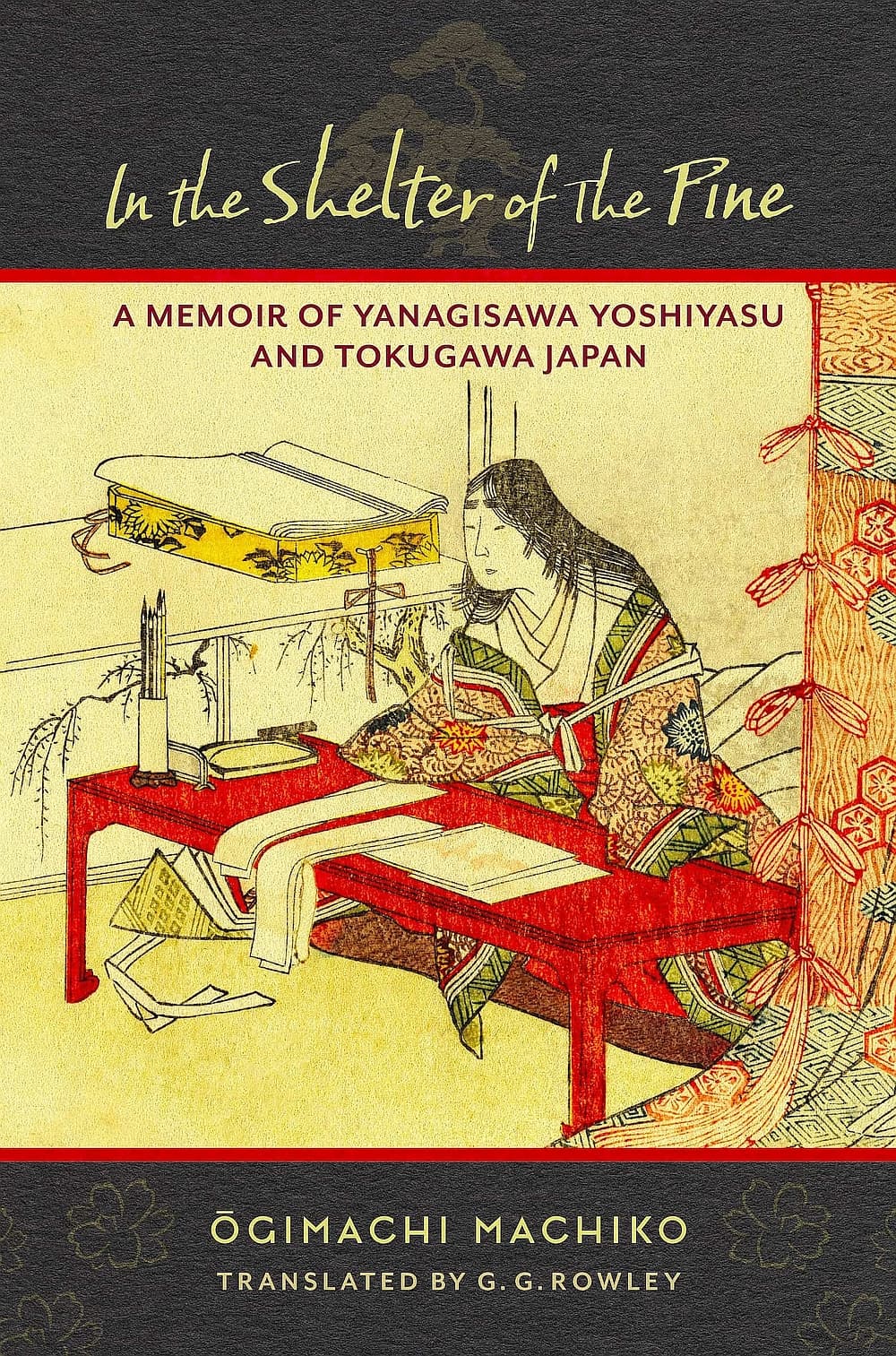A Memoir of Yanagisawa Yoshiyasu and Tokugawa Japan
New York: Columbia University Press, 2021
Winner, 2022-2023 Lindsley and Masao Miyoshi Translation Prize, Donald Keene Center of Japanese Culture
Like any work of literature, In the Shelter of the Pine is many things. It is an intimate memoir of the powerful samurai Yanagisawa Yoshiyasu (1658-1714) by his aristocratic concubine Ōgimachi Machiko (1679?-1724). It has been described as an unofficial history of the fifth Tokugawa Shogun Tsunayoshi’s controversial reign. It has also been called “A Genji for the eastern provinces” (Azuma Genji), emphasizing the work’s connections to The Tale of Genji, the great eleventh-century novel by Murasaki Shikibu.
Machiko was born in Kyoto to a middle-ranking aristocratic family, the Ōgimachi, a branch of the Fujiwara clan. Yoshiyasu referred to these origins in a poem he sent her in the spring of 1704. Machiko recalled:
My Lord sent me a long cluster of wisteria (fuji) blossoms from his garden, with this:
If you have a bond with the wisteria in bloom, bind yourself to me!
And may our vows last as long as these flowers’ tendrils.
(saku fuji no yukari to naraba kakete miyo hana no shinai no nagaki chigiri o)
Forward of me though it was, I responded, fully in earnest:
I am delighted by your bond with words that bloom like flowers; and by
our deep vows that bind us like waves of wisteria.
(fujinami ni kakete mo ureshi koto no ha no /
hana no yukari no fukaki chigiri wa)
This exchange between the two is narrated in chapter 19 of In the Shelter of the Pine, by which time Machiko had served Yoshiyasu for more than ten years and borne him two sons. Though they lived in the same mansion in Edo, present-day Tokyo, Yoshiyasu and Machiko kept in touch with one another via exchanges of poetry, like the fictional Genji and the ladies he gathered in his Rokujō estate. Machiko modeled her story on The Tale of Genji—but instead of Genji’s flaws and foibles, here was a faultless hero, a filial son, a faithful servant of the shogun, duly showered with favors. Elegant, poetic, and revealing, Machiko’s memoir opens a window onto another world.
For more about the cover of the book, click here.
For more about the portrait of Yanagisawa Yoshiyasu in my book, click here.
